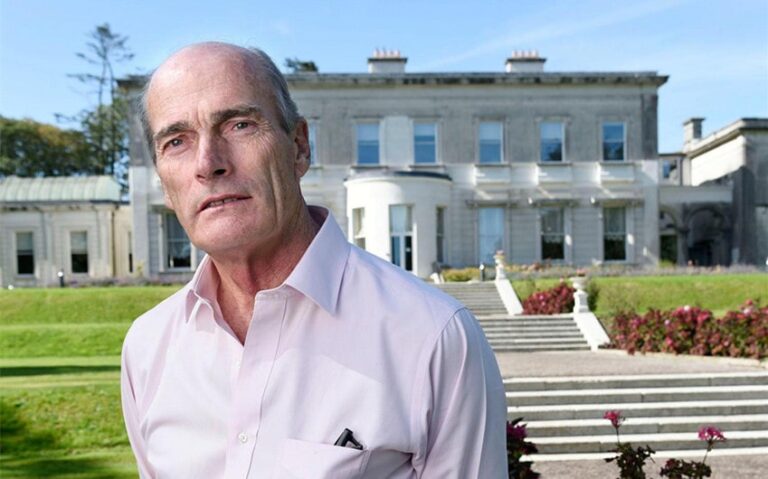What Bruce Wayne’s Net Worth Tells You About Power and Persona
When you think about Bruce Wayne’s net worth, you’re not just imagining dollar signs. You’re picturing the Batmobile tearing through the streets of Gotham, the high-tech Batcave beneath a sprawling mansion, and a masked figure funding a one-man war on crime. Bruce Wayne, the billionaire alter ego of Batman, is one of the most iconic fictional characters ever created. But his wealth isn’t just a storytelling device—it’s a symbol of power, privilege, and purpose.
Who Is Bruce Wayne?
To understand Bruce Wayne’s net worth, you first have to understand who he is—not just as a billionaire, but as a character. Created by Bob Kane and Bill Finger in 1939, Bruce Wayne is the orphaned heir of the Wayne family fortune, one of Gotham City’s oldest and most influential dynasties. After witnessing the murder of his parents, Thomas and Martha Wayne, in a mugging gone wrong, young Bruce channels his trauma into a lifelong mission: to rid Gotham of the crime and corruption that took his family from him.
By day, Bruce Wayne is a polished, charismatic businessman and philanthropist. He’s the CEO of Wayne Enterprises, a massive conglomerate with ventures in defense, technology, health care, transportation, and more. His public persona is that of a playboy billionaire—a man who attends charity galas, funds urban renewal projects, and maintains a carefully curated image of detached wealth.
But by night, he becomes Batman: a masked detective and vigilante who uses his wealth to bankroll his crusade against Gotham’s underworld. Armed with cutting-edge technology, unmatched combat training, and a brilliant strategic mind, Batman fights enemies like the Joker, Two-Face, and the Riddler—not to mention systemic corruption that seeps into the city’s law enforcement and political institutions.
The duality of Bruce Wayne is essential to his myth. He isn’t a superpowered alien or a mutant with special abilities. He’s just a man—albeit one with nearly unlimited resources, unwavering determination, and a willingness to blur ethical lines in the pursuit of justice. His net worth, then, becomes more than background noise. It’s the fuel for everything he builds, breaks, and becomes.
Bruce Wayne’s Net Worth—Estimates and Comparisons
Bruce Wayne’s fortune has long fascinated fans, comic writers, and financial analysts alike. While the exact figure varies depending on the storyline, most estimates place his net worth between $9 billion and $11 billion. That would rank him among the richest fictional characters in history and put him on par with real-world billionaires like Elon Musk and Jeff Bezos—albeit with a very different set of priorities.
Canonical Estimates and Pop Culture Rankings
Publications like Forbes have regularly ranked Bruce Wayne on their annual “Fictional 15” list of richest imaginary characters. In 2013, Forbes estimated his net worth at $9.2 billion, based on Wayne Enterprises’ assumed market valuation and Bruce’s personal holdings. Other analyses, taking into account additional real estate and tech development, have edged that number closer to $11 billion in more recent years.
Within the DC Universe itself, Bruce Wayne is consistently portrayed as one of the most powerful financial figures in Gotham—and the world. His resources allow him to compete with (and often outmatch) characters who do have supernatural abilities. The fact that he can fund an entire Justice League headquarters or create anti-Superman contingency plans is part of what makes his wealth so narratively potent.
Comparisons to other fictional billionaires are inevitable. Tony Stark (Iron Man) is often cited as Marvel’s equivalent, though his net worth is usually placed slightly lower, around $8 to $10 billion. Lex Luthor, another DC billionaire, also competes with Wayne on both financial and intellectual levels. But unlike Luthor, whose wealth often feeds villainy, Wayne’s fortune is (at least in theory) aimed at the greater good.
What’s especially interesting about Bruce Wayne is how his wealth is rarely flaunted for its own sake. He drives expensive cars and owns multiple properties, yes—but it’s always in service of the mission. Even his playboy persona is strategic, designed to deflect suspicion from his nighttime activities. His money isn’t just for comfort. It’s a tool—and sometimes a weapon.
Assets Breakdown
Bruce Wayne’s wealth isn’t just sitting in bank accounts. It’s embedded in a vast network of properties, technologies, and secret operations that make up the Batman empire.
Start with Wayne Manor, the sprawling Gothic estate perched outside Gotham. Not only is it a high-value piece of real estate in its own right, but it also conceals the Batcave—a high-tech operations hub complete with supercomputers, training facilities, vehicle bays, and trophy cases from past missions. The cost to build and maintain such a facility would be astronomical. Estimates from fan analyses suggest that the Batcave alone could cost over $1 billion to design, excavate, and equip.
Then there’s Wayne Tower, the corporate heart of Wayne Enterprises located in downtown Gotham. This skyscraper houses business operations, research labs, and secret entrances to Batman’s underground transportation systems. Bruce also owns other properties across Gotham, including safe houses, training outposts, and emergency bunkers. These assets not only represent real estate value but also add layers of logistical sophistication to Batman’s crime-fighting capabilities.
The Batmobile, one of the most iconic vehicles in pop culture, has gone through countless variations—each more elaborate than the last. Built with custom armor, experimental engines, military-grade navigation systems, and often loaded with gadgets, the Batmobile is estimated to cost between $3 million and $18 million depending on the model. Then you have the Batwing (his private jet), the Batboat, and even a satellite surveillance system introduced in some comics and films—all privately financed and operated by Bruce Wayne.
His R&D budget must be staggering. From grappling hooks to AI-assisted detective tools, Batman’s arsenal involves constant innovation. Luckily, Wayne Enterprises’ applied sciences division conveniently doubles as his personal tech incubator.
Expenses of Being Batman
It’s easy to think of Bruce Wayne’s net worth as a static figure, but in reality, he spends millions—maybe billions—every year on maintaining his role as Batman. The cost of custom vehicles, high-tech suits, weapons, surveillance gear, and staff (including Alfred, Lucius Fox, and possibly outsourced intel) adds up quickly.
One estimate calculated the annual cost of being Batman at approximately $682 million, taking into account everything from equipment and maintenance to medical expenses and stealth operations. And that’s a conservative number. Batman doesn’t just respond to threats—he prepares for worst-case scenarios, which means building redundancy into every system and funding long-term contingencies, including global intel networks.
Then there’s the cost of secrecy. Keeping his identity hidden from friends, enemies, and the public requires layers of encryption, misdirection, and often elaborate corporate cover stories. Every time a Batplane takes off or a prototype gadget is deployed, it must be accounted for—and disguised—on Wayne Enterprises’ books.
His financial obligations also include charitable giving. As Bruce Wayne, he’s known for funding hospitals, orphanages, schools, and public infrastructure. In some storylines, he even creates urban development projects to revitalize crime-ridden neighborhoods. These philanthropic efforts aren’t just part of his public persona; they’re an extension of his mission as Batman.
Even with all these expenses, his fortune appears to replenish itself, thanks to the profitability of Wayne Enterprises and the strategic investments he maintains. Unlike real-world billionaires who often profit from media exposure or political influence, Bruce Wayne’s power grows quietly, behind the scenes—funding a legacy that’s as symbolic as it is practical.
Bruce Wayne’s net worth, in the end, isn’t just about the money. It’s about what he chooses to do with it. It’s a reflection of how wealth, when paired with purpose, can create a mythology that endures for generations. Batman may be a vigilante, a detective, a symbol—but it all begins with Bruce Wayne, a billionaire whose most valuable asset is his unwavering will.







